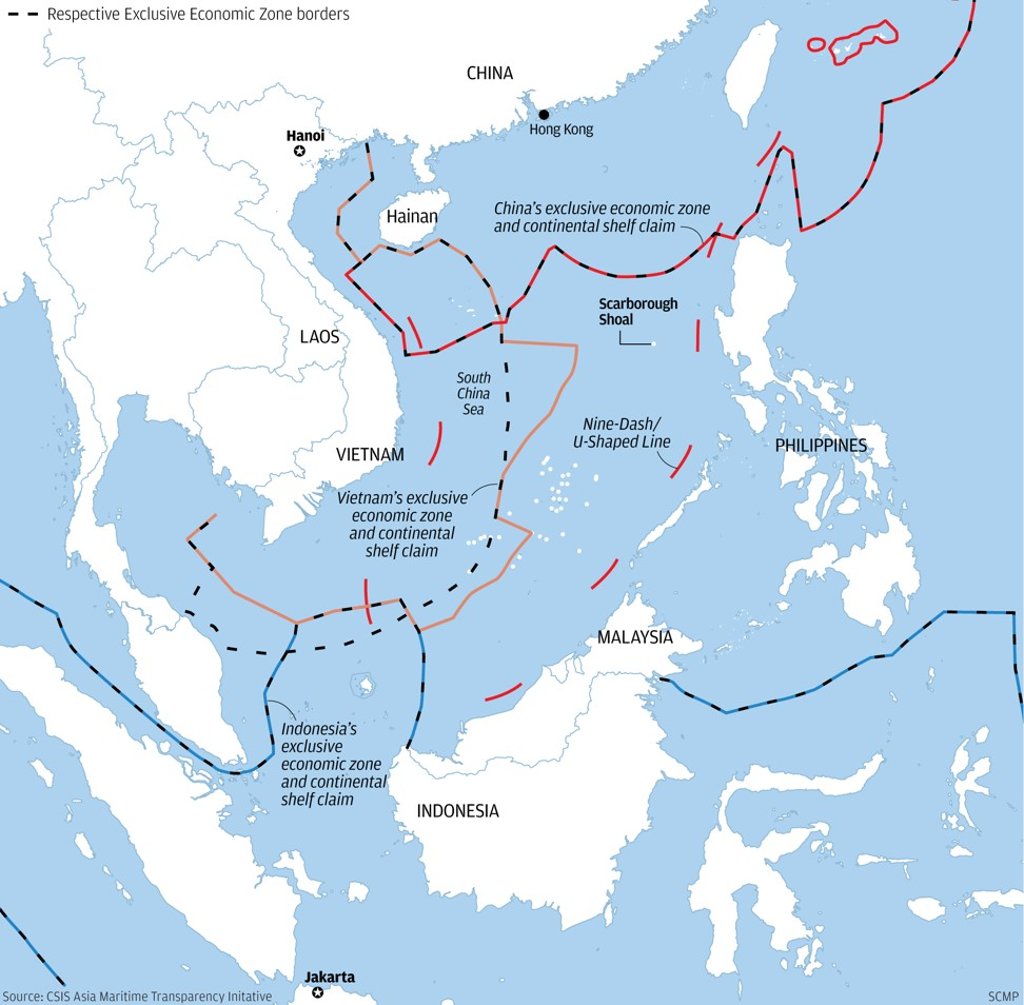Advertisement
In South China Sea, Asean has a choice: ‘Asian values’ or rule of law?
- The bloc of Southeast Asian nations is negotiating a code of conduct with Beijing to prevent flare-ups in the contested waterway
- In doing so, it risks alienating its global partners by undermining international law with cultural exceptionalism
Reading Time:3 minutes
Why you can trust SCMP
7

Asian seas are far from tranquil as Beijing asserts control and builds its military presence in the South China Sea. The strategic waterway is now one of the world’s most volatile geopolitical fault lines, and smaller countries in the region are faced with the thorny problem of how to respond.
For the Association of Southeast Asian Nations (Asean), its management of the issue will test whether the group believes in “Asian values” and cultural exceptionalism or places greater emphasis on upholding international law.
This debate played out last week when senior maritime officials from more than 40 nations, including 26 defence, navy and coastguard chiefs, gathered in Singapore for the 12th edition of the International Maritime Defence Exhibition and Conference (Imdex) Asia, which ended on May 16.
Alongside it ran the International Maritime Security Conference (IMSC), which provided a platform for professionals, policymakers and academics to iron out the issues.
The success of Imdex in recent years underscores the importance of shipping to Asia’s prosperity. According to the United Nations, international seaborne trade grew by 4 per cent in 2017 – the fastest in five years. Much of this growth stems from Asia: 4.4 billion out of the 10.7 billion tonnes of goods shipped globally each year are loaded at Asian ports.
Advertisement

